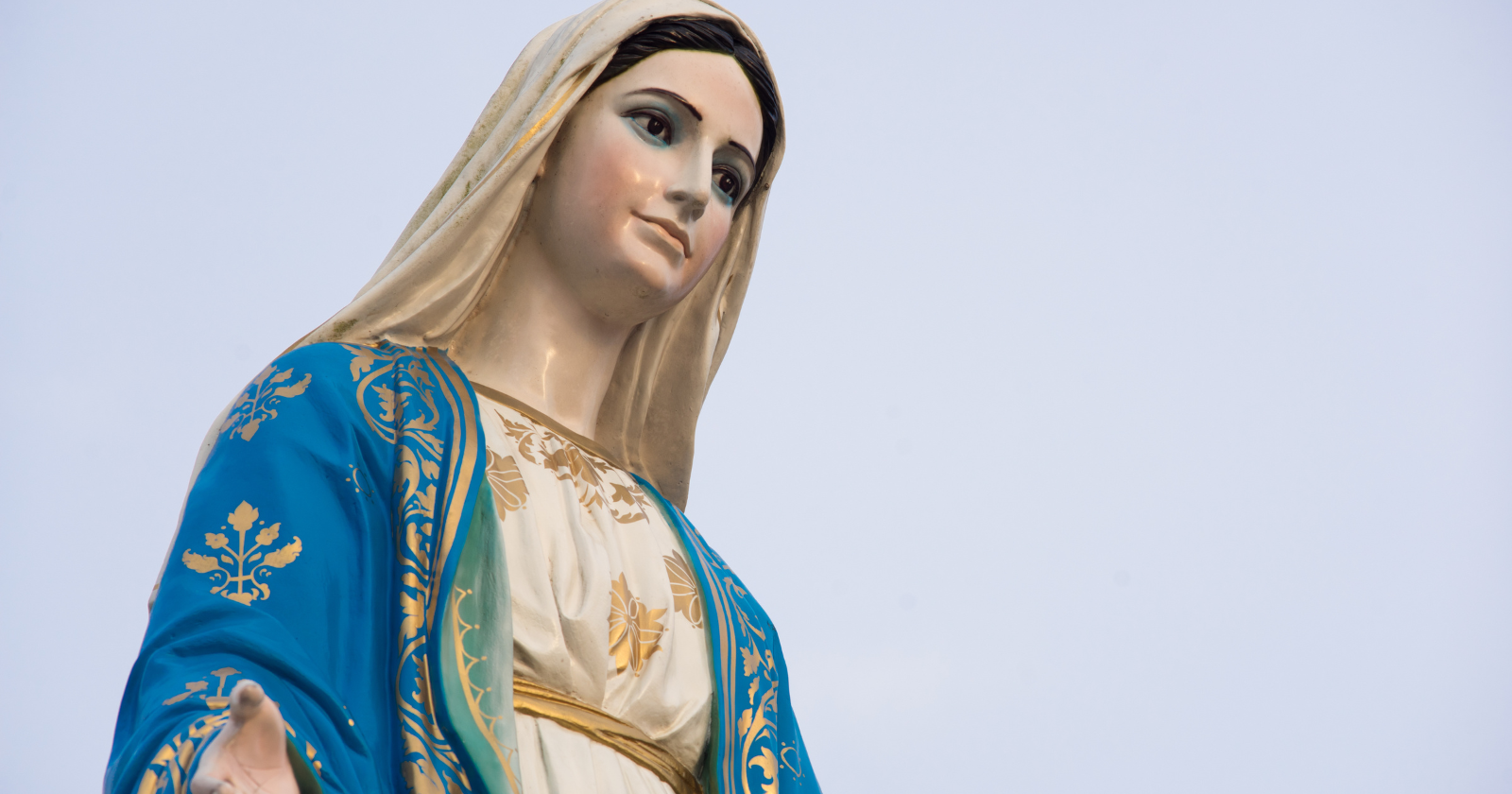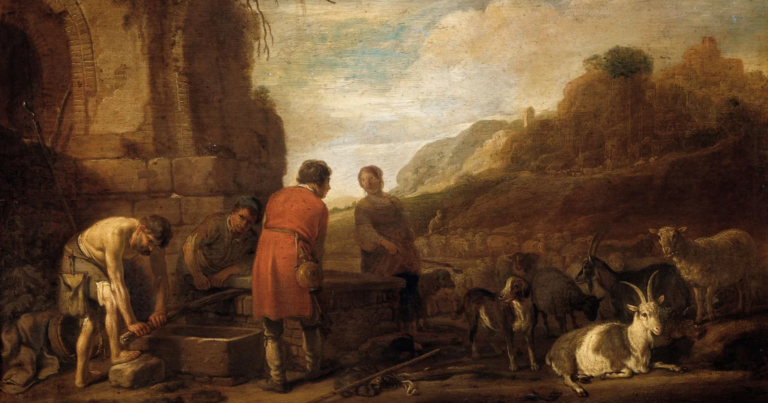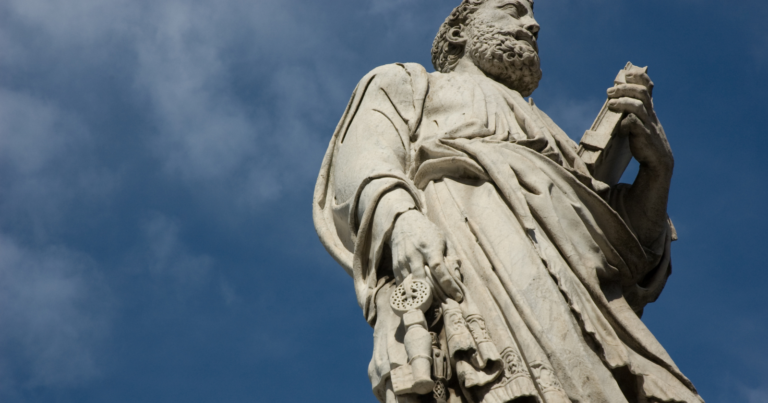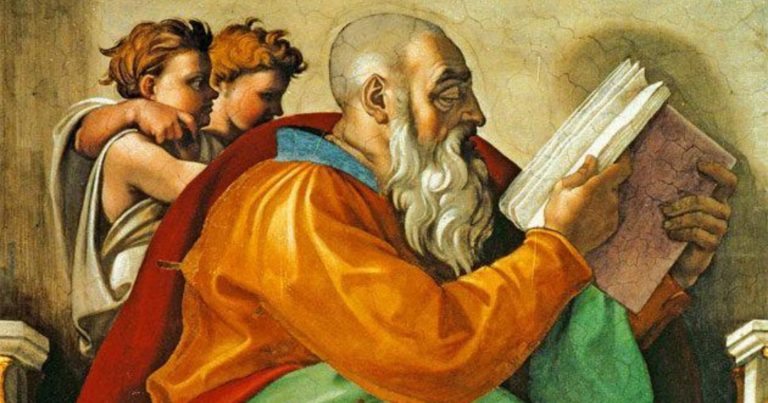“Behold, I am the handmaid of the Lord; let it be to me according to your word.”
Luke 1:38
Mary, the mother of Jesus, holds a unique and profound place in the Christian scriptures.
Some people even believe that she bridges the Old and New Testaments with her pivotal role in salvation history.
From the annunciation to her presence at the crucifixion, Mary’s journey encapsulates faith, obedience, and grace.
But how much do we genuinely know about her?
She’s not just a character in the nativity story, she’s a woman who played a pivotal role in one of the most significant events in human history.
In this article, I’m going to share 8 intriguing facts about Mary, that you may not have come across before.
Mary in the Scriptures
Mary, the mother of Jesus, is a figure of immense significance throughout the Scriptures, her presence marking key moments in the biblical narrative.
Her appearances span from the annunciation of Jesus’ birth to her quiet presence among the early believers.
Here’s a glance at her scriptural journey:
- The Annunciation (Luke 1:26-38): Gabriel visits Mary to announce she will bear the Son of God.
- The Visitation (Luke 1:39-56): Mary visits Elizabeth, leading to the Magnificat.
- The Nativity (Luke 2:1-7; Matthew 1:18-25): The birth of Jesus, where Mary is central.
- The Presentation in the Temple (Luke 2:22-38): Mary and Joseph present Jesus, encountering Simeon and Anna.
- The Finding in the Temple (Luke 2:41-52): Mary and Joseph find Jesus teaching in the temple.
- The Wedding at Cana (John 2:1-11): Mary prompts Jesus’ first miracle.
- At the Cross (John 19:25-27): Mary stands by Jesus’ side during his crucifixion.
Based on these Scriptures, Mary’s story in the Bible underscores her unwavering faith and profound role in God’s plan.
From the joy of Jesus’ birth to the sorrow of his death, Mary remains a steadfast witness to his life, teachings, and sacrifice.
Her appearances in the Scriptures not only highlight key events in the life of Jesus but also offer a glimpse into her deep faith and the pivotal role she played in the Christian narrative.
7 interesting facts to know about Mary, according to Scriptures
1) Mary was likely a teenager when she became Jesus’s mother
In the historical context, it’s easy to overlook the fact that Mary was probably just a teenager when she gave birth to Jesus.
That’s right.
The cultural norms of her time dictated that women generally got married and started families young. So, it’s highly likely that this extraordinary woman was in her early teens when she took on the monumental task of motherhood.
Think about that for a moment: a teenager, bearing the responsibility of raising the Son of God. It’s an awe-inspiring thought, isn’t it?
Yet, she embodied grace, strength, and faithfulness in her role as a mother despite her young age.
This fact offers us a new perspective on Mary – one that emphasizes her courage and resilience in the face of immense responsibility.
2) The Magnificat shows Mary’s psychological strength
Mary’s words in the Magnificat – a biblical canticle where she praises God – are a testament to her psychological resilience.
Despite her circumstances – an unplanned pregnancy, societal judgment, and the daunting knowledge of her son’s fate – she chooses not just to endure but to rejoice in God’s plan.
“Behold, from now on all generations will call me blessed,” she says, expressing her acceptance and even joy in her role.
This is resilience in action.
She doesn’t crumble under the weight of her circumstances but instead finds strength and purpose in them. It’s a remarkable display of mental fortitude, don’t you think?
3) Mary wasn’t always completely accepting of her situation
In contrast to the resilience Mary demonstrated in the Magnificat, there were moments when she showed signs of doubt and confusion.
An instance that stands out is when she, along with Joseph, lost track of twelve-year-old Jesus during a festival.
They found him eventually in the temple, engaging in discussions with the elders.
When Mary expressed her distress, Jesus replied, “Did you not know that I must be in my Father’s house?” But the bible tells us that Mary did not fully understand what he meant.
This revelation is counter-intuitive to the image of a perpetually accepting and understanding Mary. However, it makes her more real and relatable.
Just like any of us, she had moments of confusion and uncertainty.
It reminds us that even in her extraordinary journey, she was human, experiencing a wide spectrum of emotions.
4) Mary’s name has a powerful meaning
Ever thought about what your name means?
In general, names often carry significant meanings and Mary’s is no different.
In Hebrew, Mary is Miriam, which translates to “sea of bitterness” or “sea of sorrow”. However, it can also mean “rebellion” or “wished-for child”, depending on the interpretation.
Despite the sorrow and bitterness suggested by her name, Mary chose a path of rebellion against despair. She carried her burdens with grace and turned her journey into one of hope and faith.
The meaning behind her name offers us a reflection on our own lives. How we respond to our circumstances can redefine us, just as Mary redefined the implied connotations of her name.
5) Mary’s life wasn’t all miracles and angelic visits
If you look closely, Mary’s life was punctuated by ordinary, relatable moments.
Just like us, she lived a human life with its ups and downs. Here are a few aspects of her life that illustrate this:
- She went through childbirth, a universal experience for mothers.
- She raised a child, caring for Jesus in his growing years.
- She experienced loss when Joseph presumably passed away before Jesus’s ministry began.
- She lived through the heartbreak of seeing her son crucified.
These “ordinary” experiences underscore the humanity of Mary, far removed from the miraculous and divine. It paints a picture of a woman who lived, loved, and lost, just like any one of us.
6) Mary’s presence at Pentecost signifies unity and community
When I think about unity and community, I’m reminded of Mary’s presence at the Pentecost event, as described in the Acts of the Apostles.
Consider this:
After the crucifixion of Jesus, the disciples were left leaderless and frightened. It was during this time that Mary was with them, offering her unwavering support.
She was right there, amidst them, when the Holy Spirit descended. This moment marked the birth of the Christian Church, a community founded on faith, love, and unity.
Let’s take a moment to appreciate Mary’s role here. She went from being a supportive mother to a pillar of support for Jesus’s disciples.
In our own lives, we too can strive to be sources of strength for those around us. Just like Mary, we can play a part in fostering unity and community in our own small ways.
7) Mary’s ‘fiat’ is a lesson in trust and surrender
Imagine being told you’re going to give birth to the Son of God.
What would be your reaction?
This was exactly what Mary faced when Angel Gabriel announced God’s plan to her.
Her response?
A simple yet powerful ‘fiat’ – “Let it be done to me according to your word.”
Mary’s ‘fiat’ wasn’t just an acceptance, it was a complete surrender to God’s will, even when it was beyond her understanding. She trusted in the divine plan, despite the uncertainties and challenges it entailed.
In our lives, we often face situations that are beyond our control. What if, like Mary, we chose to trust and surrender instead of worrying and resisting? Could we find peace in the midst of chaos?
Mary’s ‘fiat’ invites us to ponder on these questions and reflect on our own responses to life’s unexpected turns.
8) Mary’s greatest role was being a mother
The most crucial point, the final one that I want to share with you, is this: at the heart of all her experiences, Mary was a mother.
Despite her divine calling and miraculous experiences, she was a mother who loved and cared for her son. She nurtured Jesus, guided him, and stood by him through joys and sorrows.
Regardless of the divine narratives and theological interpretations, this simple fact remains. Mary, the mother of Jesus, exemplifies the profound love, courage, and strength inherent in motherhood.
And that’s something we can all appreciate and relate to, regardless of our beliefs or backgrounds.
Mary’s divine protection
“A great sign appeared in the sky, a woman clothed with the sun, with the moon under her feet, and on her head a crown of twelve stars.” (Revelation 12:1)
This passage from Revelation paints a majestic image of Mary, presenting her not just as the mother of Jesus but as a figure of cosmic significance.
It symbolizes Mary’s divine protection and her crucial role in the battle between good and evil.
The imagery of Mary clothed with the sun, standing on the moon, and crowned with stars speaks volumes about her exalted status and the protection afforded to her by God.
This vision serves as a reminder of Mary’s enduring presence and protective gaze over humanity in its spiritual battles.
It also underscores her role as the Queen of Heaven revered and honored by the faithful.
Through this depiction, believers are invited to seek refuge under Mary’s mantle, trusting in her intercessory power to guide them through life’s trials toward victory in Christ.
What can we learn from Mary’s life?
All in all, Mary’s life, as depicted in the Bible, offers us a rich tapestry of lessons. She lived a life of faith, resilience, and profound love.
Here are a few things we can take away from her story:
- The power of faith and surrender in the face of uncertainty.
- The strength that comes from resilience.
- The beauty of ordinary human experiences amidst extraordinary circumstances.
- The transformative role of love and motherhood.
As we reflect on these aspects of Mary’s life, let’s consider how they resonate with our own experiences. How can we embody faith, resilience, love, and surrender in our daily lives?
Mary’s story encourages us to embrace our humanity – with all its joys, sorrows, challenges, and triumphs – and find meaning in our unique journeys. So let’s ponder that as we go about our days.













